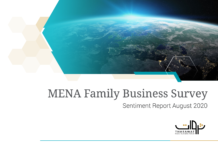The philosopher Jiddu Krishnamurti said, “One is never afraid of the unknown; one is afraid of the known coming to an end.”
He probably wasn’t referring specifically to the future of the economy when he said it. Nonetheless, his observation is highly relevant to the tangle of conflicting theories about the effects of the growing gig economy on our current model.
The gig economy is changing the shape of the global workforce. Freelancers are the fastest-growing labour group in the European Union and have been since 2000. In the United States, freelancers represent 35 per cent of the working population and could constitute more than half of the country’s workforce by 2027.
The implications of this sea change on the global economic landscape will be decided by the same subtleties of character that inspired Krishnamurti. The emerging data-supported outlook suggests that, not unlike the human condition, the answer is perhaps a paradox: predictable and unfathomable at the same time.

Work in Progress
Although the gig economy is often conflated with the sharing or collaborative economy, the explicit distinction lies in the work itself. Gigs are finite, often temporary tasks. For the most part, this work exists on a part-time basis, although full-time gig workers are on the rise, constituting as much as 13 per cent of the workforce in the US. Gigs vary greatly – from making deliveries to cleaning houses and coding software. Digital communication and communities play an integral role; transaction platforms like Fiverr, UpWork, Uber and Foodora are among a host of online portals connecting workers to their assignments.
The sharing economy, on the other hand, tends to revolve around renting underused assets, usually real estate or transportation, for short periods. Some of the most significant players in the sharing space are Airbnb, Lime, JustPark and Zipcar.

That said, the gig economy and the sharing economy overlap. For example, gigs are frequently offered in support of a sharing activity. California-based transportation rental company Lime shares its battery-powered scooters and bikes in 26 countries around the world. The task of charging Lime’s batteries, however, falls to gig workers, freelancers known as Lime Juicers who locate and recharge the company’s vehicles. Arguably, Uber drivers straddle both definitions utilising their underused vehicles in conjunction with a driving gig.
“Anywhere-anytime connectivity has given birth to the Human Cloud; labour is performed remotely and on demand.”
The Tech
The definitions are fluid, but technology is the catalyst in both cases. Anywhere-anytime connectivity has given birth to the Human Cloud; labour is performed remotely and on demand. The digital facilitators that drive the gig economy are embraced in particular by Millennials, but data points to their adoption becoming heterogeneous across the demographic spectrum.
As technology evolves and our digital connections become increasingly intimate, there are those in the workforce leaving conventional salaried positions for freelance work. Often, lifestyle is a factor.
In turn, conventional companies are looking to the gig economy’s methodology to revolutionise their operations. Their employees might thank them: according to a recent poll of United Kingdom workers, flexible hours and flexible working locations contributed to greater job satisfaction and productivity. Hiring freelancers makes complete economic sense for companies, but leveraging the same collaborative technology internally to give workers more freedom also has its benefits.

Gigging and Entrepreneurship
Entrepreneurship is the backbone of family business, and nearly 20 per cent of entrepreneurs around the world work with family members. Not only does the gig economy provide people with the personal tools that entrepreneurship requires as well as a taste of the self-employed lifestyle, but it also serves as an income-generating safety net for those transitioning from regular employment to self-employment. Many freelancers turn to the gig economy when recruiting talent for their small businesses, securing cost-effective, temporary and skilled freelancers from the same pool that they work in.
The gig economy is redefining what it means to be an entrepreneur. Gigging platforms offer workers the same independence and flexibility once strictly associated with entrepreneurship. Also, gig workers are sometimes tasked with the same demands that entrepreneurs might experience while building their businesses from the ground up.
So, does this grey area between entrepreneurship and gig economy workers mean more entrepreneurship and more family companies? Possibly, but not in the way some might expect.
[ms-protect-content id=”4069,4129″]
A Proofing Ground
In a 2016 paper, Gordon Burch, Seth Carnahan and Brad Greenwood examined the influence of gig economy platforms on local entrepreneurial activity. What they found was that there was a significant decrease in crowdfunding campaigns in areas that had been recently introduced to ride-sharing platform Uber X and on-demand delivery service Postmates. An interesting takeaway from the data was how primarily unfunded and under-funded projects were affected most, suggesting that gig economy platforms might reduce entrepreneurial activity that is lacking inspiration, at least where capital is concerned.
This may mean fewer family start-ups in the short term but more driven and sustainable family businesses in the long run. Applying the same reasoning beyond the realm of start-ups, it is easy to see how an entire family might be involved with the operation of one or many Airbnb properties, but for them to take the leap to become the next Hilton Hotels, a passion that burns brighter than the comfort zone of the gig and sharing economies is required. Therefore, the future of family business might end up looking like Sweden.
“The gig economy has the potential to give a vast majority of workers a taste of entrepreneurship, and all indicators point to it being something those workers want.”
A Familiar Future?
For the last two decades, workers in Sweden have had a statutory right to six months of entrepreneurial leave a year. Thanks in part to The Right to Leave to Conduct a Business Operation Act, Stockholm is second only to the United States’ Silicon Valley for billion-dollar technology companies per capita. The unpaid nature of the Swedish sabbatical means it likely shares the same culling effect gig economy platforms are purportedly having on start-ups: only the passionate pursue their entrepreneurship in a meaningful (and sustainable) way. The outcomes are encouraging, however. Spotify, Mojang, the company behind Minecraft before selling to Microsoft and Skype before it became a Microsoft product are just some successes of Sweden’s innovative entrepreneurial policy.

Perhaps, like Sweden, the rest of the world is poised to use their spare time and resources in support of monetised independence via the growing gig economy. As the Swedish model indicates, however, it takes more than technology to drive the trend: it takes people. As the economic historian Louis Hyman puts it: “The history of labour shows that technology does not usually drive social change. On the contrary, social change is typically driven by decisions we make about how to organise our world.”
People, not technology, are reshaping the global economic and labour landscape. The gig economy has the potential to give a vast majority of workers a taste of entrepreneurship, and all indicators point to it being something those workers want. The rise of freelancing represents a disruption to the status quo and a paradigm where determination is rewarded. For family businesses, the experience will be impactful but also uniquely relatable.
[/ms-protect-content]














